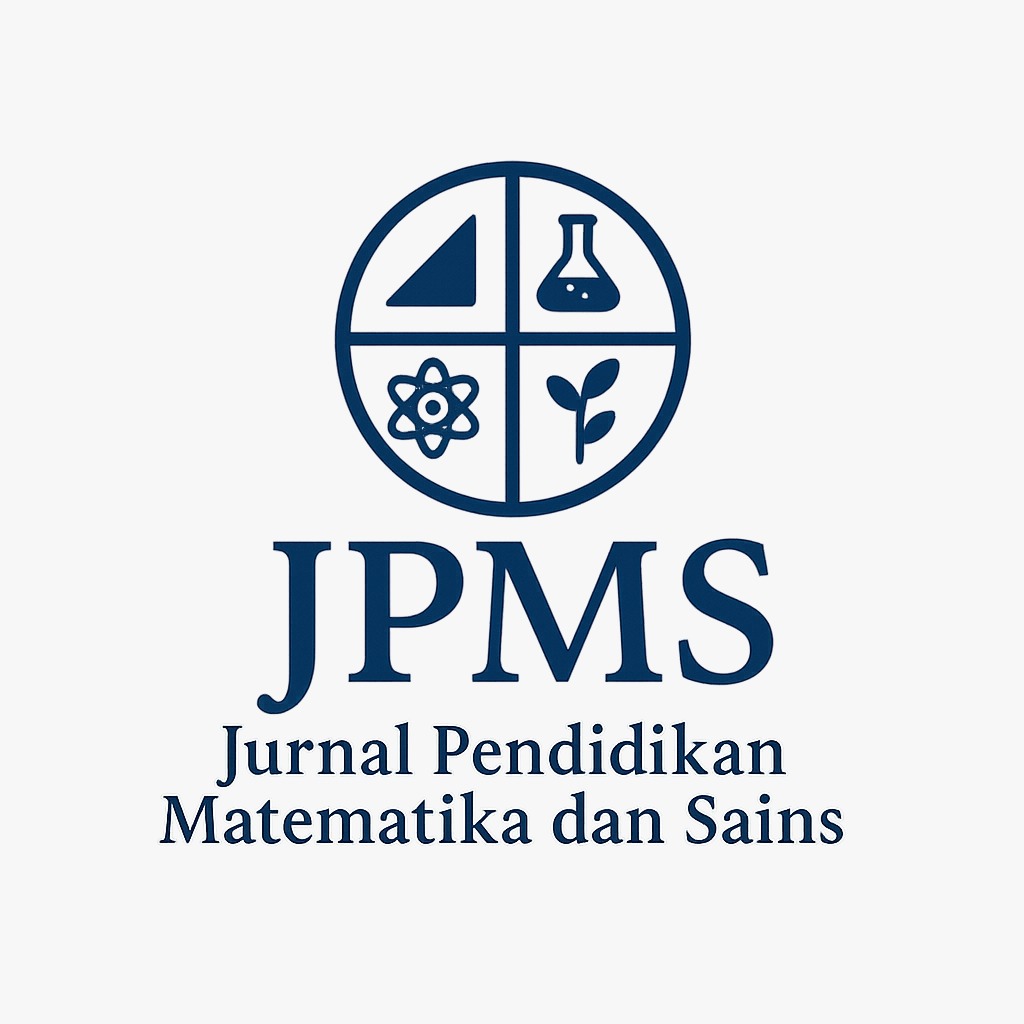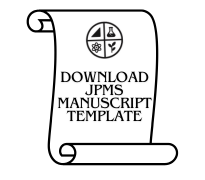Pengembangan blog sebagai media dalam pembelajaran berbasis proyek
Keywords:
pengembangan, perangkat pembelajaran, PjBL, keterampilan kerja sama, kemampuan pemecahan masalahAbstract
Penelitian ini bertujuan untuk: mengetahui peningkatan kemampuan pemecahan masalah dan keterampilan kerja sama peserta didik kelas. Metode yang digunakan dalam penelitian ini adalah Research and Development (R&D) yang menggunakan model 4-D (four D model). Populasi penelitian ini adalah peserta didik kelas X MAN Yogyakarta III pada semester kedua tahun ajaran 2014/2015. Teknik pengumpulan data yang digunakan adalah teknik observasi dan tes. Teknik observasi digunakan untuk mengetahui keterampilan kerja sama peserta didik. Aspek keterampilan kerja sama yang diteliti adalah bekerja produktif, tanggung jawab dan fleksibilitas. Tes digunakan untuk mengetahui kemampuan pemecahan masalah peserta didik pada pokok bahasan Alat-Alat Optik sebelum dan sesudah perlakuan. Teknik analisis data yang digunakan adalah teknik peningkatan gain, kemudian dilanjutkan dengan uji multivariate ( MANOVA). Hasil penelitian ini menunjukan bahwa : Blog sebagai media dalam pembelajaran fisika dapat meningkatkan kemampuan pemecahan masalah dan keterampilan kerja sama peserta didik.
The Development of Blog as Media in Project-Based Learning
Abstract
This study aims to: know the increase of student's problem solving skills and teamwork skills. The method used in this research was the Research and Development (R & D) using 4-D models. The population of this experiment were students of class X MAN Yogyakarta III in the second half of the school year 2014/2015. The data were collected through observation and test. The Observation technique was used to determine the student cooperation. Aspects of cooperation skills studied were working productively, responsibility and flexibility. The test was used to determine the problem solving ability of students in the subject Optical Devices before and after treatment. Data analysis technique used was the technique of the increase in gain scores, followed by multivariate test (MANOVA). These results indicate that: Blogs as a media-based learning PjBL can improve problem solving and teamwork skills.
Keywords: development, learning devices, PjBL, teamwork skills, problem solving ability
Abstract
This study aims to: know the increase of student's problem solving skills and teamwork skills. The method used in this research was the Research and Development (R & D) using 4-D models. The population of this experiment were students of class X MAN Yogyakarta III in the second half of the school year 2014/2015. The data were collected through observation and test. The Observation technique was used to determine the student cooperation. Aspects of cooperation skills studied were working productively, responsibility and flexibility. The test was used to determine the problem solving ability of students in the subject Optical Devices before and after treatment. Data analysis technique used was the technique of the increase in gain scores, followed by multivariate test (MANOVA). These results indicate that: Blogs as a media-based learning PjBL can improve problem solving and teamwork skills.
References
Baker, E., Trigg, B., Otto, P., Tudor, M., & Fergusson, L. (2011). Project-based learning model, relevant learning for the 21st century. Pacific Education Institute.
Bas, G. (2011). Investigating the effects of project-based learning on students' academic achievement and attitudes towards english lesson. Tojned. The Online Journal Of New Horizons In Education - October 2011, Volume 1, Issue 4. Diakses pada tanggal 15 Oktober 2014, http://www.tojned.net /pdf/ tojnedv01i04-01.pdf
Bagheri, M. W. Z. (2013). Effects of project-based learning strategy on self-directed learning skills of educational technology students. Contemporary Educational Technology, 2013, 4(1), 15-29. Diakses pada tanggal 3 Oktober 2014, dari http://www.cedtech.net/ articles/41/412.pdf.
Binkley, M., Erstad, O., Raizen, S., Ripley, M., Miller-Ricci, M., & Rumble, M. (2012). Deï¬ning twenty-first century skills. dalam p. griffin, b. mcgaw, & e. care (penyunt.), Assesment and teaching of 21 st century skills (hal. 13-36). Dordrecht: Springer.
Chanlin, L."J. (2008). Technology integration applied to project"based learning in science. Innovations in Education and Teaching International Vol. 45, No.1,February,2008,55–65, Diakses pada tanggal 15 September 2014, dari http://lins.fju.edu.tw/~lin/papers/200802technointeg.pdf.
Hake, R. R. (1998). Interactive-engagement vs traditional methods: a six-thousandstudent survey of mechanics test data for introductory physics courses. American Journal of Physics, 1-26. Diakses pada tanggal 5 Maret 2015, dari http/.www.dwb.unl.edu /Diss/Royuk/Royuk_Diss_Body.pdf
Hung, M. C. G.-J. H. (2012). A project-based digital storytelling approach for improving students' learning motivation, problem-solving competence and learning achievement. Educational Technology & Society, 15 (4), 368–379, Diakses pada tanggal 2 September 2014, dari http: //www.ifets.info/journals/154/31.pdf.
Karina, N. K. D., I. W. Sadia, I. W. Suastra. (2014). Pengaruh model pembelajaran berbasis proyek terhadap kemampuan pemecahan masalah dan kecerdasan emosional peserta didik smp [Versi Elektronik]. e-Journal Program Pascasarjana Universitas Pendidikan Ganesha Program Studi IPA (Volume 4 Tahun 2014). [Diakses tanggal 2 September 2014].
Miftari, I. (2014). Project based learning: Developing 21st Century collaborative and technology skills. European Journal of Research on Education, 2014, Special Issue: Educational Technology and Lifelong Learning, 52-57. Diakses pada tanggal 15 Agustus 2014, dari http://iassr2.org/rs/020608 .pdf.
Kurniawati, A., & Suryadarma, I. (2015). Penyusunan media pembelajaran berbantuan komputer untuk pbl dan keefektifannya terhadap cts peserta didik sma. Jurnal Inovasi Pendidikan IPA, 1(1), 57-64. Retrieved from http://journal.uny.ac.id/index.php/jipi/article/view/4532/3904
Aiedah, K. A. Lee K. C. A. (2012). Application of project-based learning in students' engagement in malaysian studies and english language. Journal of Interdisciplinary Research in Education (JIRE) Vol.2, Issue 1, 2012, pp. 37-46, Diakses pada tanggal 28 Agustus 2014, dari http://www.taylors.edu.my/jire/ downloads/03.pdf
Pucher, R & Lehner, M. (2011). Project based learning in computer science – a review of more than 500 projects. International Conference on Education and Educational Psychology (ICEEPSY 2011). Procedia - Social and Behavioral Sciences 29 (2011) 1561 – 1566. Diakses pada tanggal 9 Agustus 2014, dari http://ac.els-cdn.com/S1877042811028655/1-s2.0-S1877042811028655-main.pdf.
Pusat Pengembangan Tenaga Kependidikan, Kementerian Pendidikan dan Kebudayaan. (2013). Pelatihan pendampingan kurikulum 2013, strategi pembelajaran berbasis proyek (PjBL).
Syaifuddin, J. N. (2012). Pengembangan multimedia berbasis blog pada sub materi fertilisasi untuk meningkatkan motivasi dan hasil belajar peserta didik kelas x1 sma n 7 yogyakarta. Tesis Magister, tidak diterbitkan, Universitas Negeri Yogyakarta. Yogyakarta.
Taale, K. D. (2011). Improving physics problem solving skills of students of Somanya Senior High Secondary Technical School in the Yilo Krobo District of Eastern Region of Ghana. Journal of Education and Practice ISSN 2222-1735 (Paper) ISSN 2222-288X (Online) Vol 2, No 6, 2011, Diakses pada tanggal 28 Agustus 2014, dari http://www.iiste.org/Journals/index.php/JEP/article/view/522/408.
Temel, S. Ä. M. (2012). Problem solving applications in chemistry laboratory. Ankara University, Journal of Faculty of Educational Sciences, year: 2012, vol: 45, no: 2, 55-76, Diakses pada tanggal 28 Agustus 2014, dari http://search.proquest.com/docview/1350277269?accountid=31324.
Thiagarajan, S., Semmel, D. S., & Semmel, M. I. (1974). Instructional for training teachers of exceptional children. Minnesota: Indiana University.
Turgut, H. (2008). Prospective science teachers' conceptualizations about project based learning. International Journal of Instruction ISSN: 1694-609X, www.e-iji.net, January 2008 Vol.1, No.1, Diakses pada tanggal 5 Agustus 2014.
Zhang, Z. (2013). Application of project-based learning in teaching of the curriculum of combining study with work of higher vocational education [Versi Elektronik]. International Conference on Education Technology and Information System (ICETIS 2013). https://www.google .co.id/url?sa=t&rct=j&q=&esrc=s&source=web&cd=1&cad=rja&uact=8&ved=0CBsQFjAAahUKEwjcyID7s5LHAhWBtJQKHX_SDF8&url=http%3A%2F%2Fwww.atlantis-press.
Downloads
Published
How to Cite
Issue
Section
Citation Check
License
Jurnal Pendidikan Matematika dan Sains allows readers to read, download, copy, distribute, print, search, or link to its articles' full texts and allows readers to use them for any other lawful purpose. The journal allows the author(s) to hold the copyright without restrictions. Finally, the journal allows the author(s) to retain publishing rights without restrictions
- Authors are allowed to archive their submitted article in an open access repository
- Authors are allowed to archive the final published article in an open access repository with an acknowledgment of its initial publication in this journal

This work is licensed under a Creative Commons Attribution-ShareAlike 4.0 Generic License.





